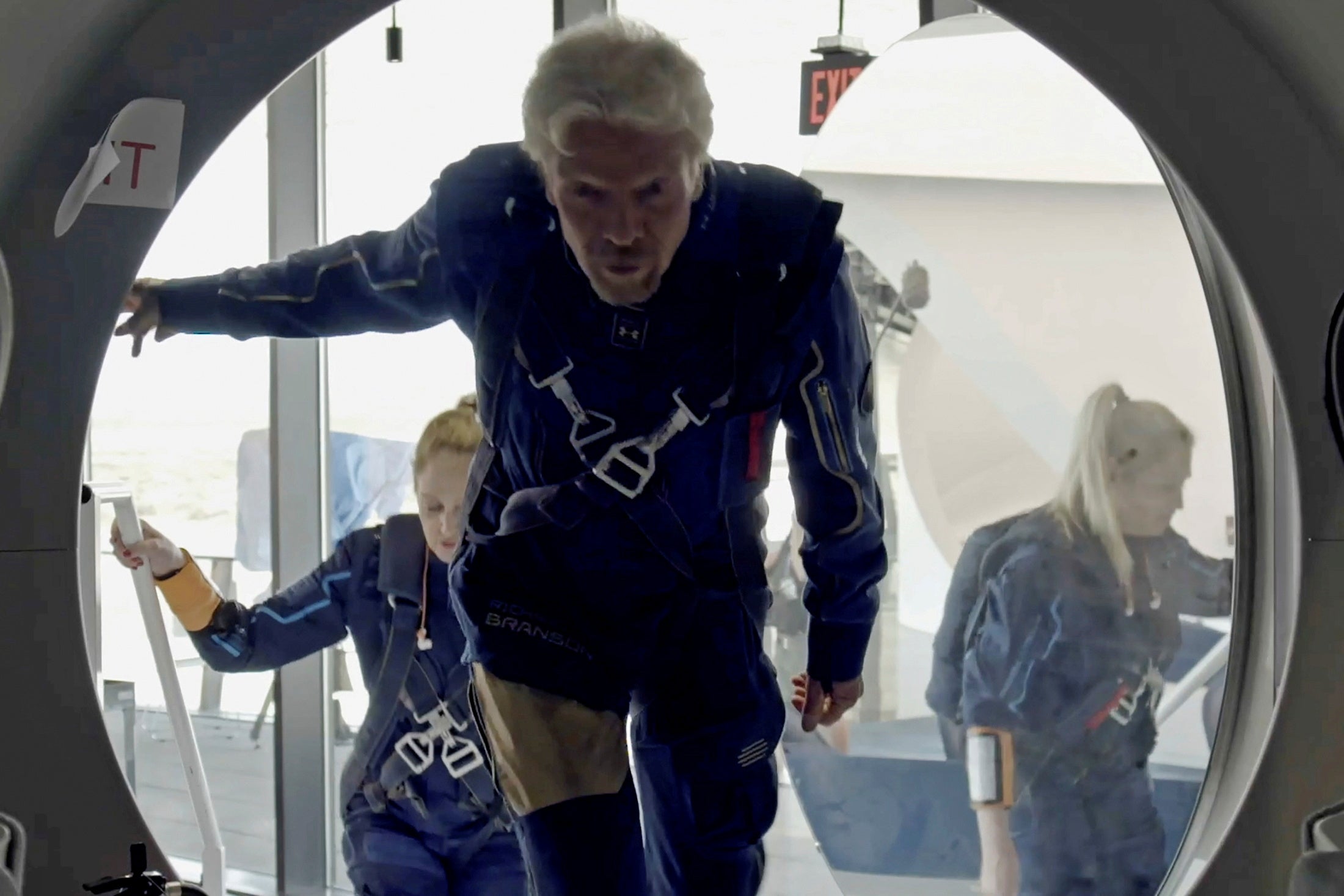Taking the rich to space won’t further humanity, but that’s not the point of Richard Branson’s genius
The Virgin founder’s entrepreneurial talent is not just about promotion, says Hamish McRae. It is also about knowing when to buy, when to sell, and how to use your brand and other people’s money


Richard Branson is a pure entrepreneurial genius. Today’s spin into space is just one more example of the way he can take an outlandish idea, create fun, fulfil people’s dreams – and make a profit out of it.
Many people make fortunes for themselves, a few create great businesses, and just a tiny number develop products or services that change all our lives – put the late Steve Jobs, Bill Gates, Mark Zuckerberg and Jeff Bezos into that last category. But the genius of Sir Richard is purer. He has made a tidy pot of wealth by most people’s standards, but with $5.9bn (£4.2bn), he is ranked by Forbes at only number 500 in their real-time billionaires’ league table. By contrast, his rival in the space race, Jeff Bezos, is in pole position with $212.4bn (£152.7bn). And with Amazon, Bezos has changed the way the world shops.
Branson on the other hand has created a string of businesses in – until now – conventional areas. His story is well-known, and he’s told it himself in a string of books, all with his cheerful face on the cover. There is the early stuff about Virgin Records, later the move into airlines, the ventures in railways, banking, and so on. He is still at it. He has just gone into the cruise business with Virgin Voyages. His new boat is called Scarlet Lady, a nicely naughty name for a huge but quite ordinary cruise liner.
This is where his genius shows. You take a straightforward business that has a slightly conventional image, and then you sprinkle your pixie dust, the Virgin brand, to give it an extra fizz. You hire good people who are loyal to you and pay them well. And you promote like mad, even if that means prancing around with cabin crew when you launch a new route. If it means kiteboarding with a naked lady on your back, you do it. In the case of Virgin Voyages, he has added a further twist by seeking to make his ships more environmentally friendly, not a quality that the cruise industry is noted for.
But his entrepreneurial talent is not just about promotion. It is also about knowing when to buy, when to sell, and how to use your brand and other people’s money. So Virgin Money pays a license fee to use the name. Sir Richard has managed to maintain control of his airline Virgin Atlantic, despite the catastrophe of the travel shutdown, by putting in his own money from a sale of $150m (£108m) of shares in Virgin Galactic. He now owns just under a quarter of the shares in his space enterprise. What seemed like a vanity exercise has actually turned out to be a considerable financial success at just the right time.
Actually Virgin Galactic is the one business where Sir Richard has been a true pioneer. You may feel it is frivolous to create a privately-owned enterprise to take rich people to the edge of space for a few minutes, and in a way it is. It certainly is not necessary. But then many activities that people like to do are not essential to the future of humankind. It isn’t necessary to go skiing, or indeed go on a cruise. But if that is something that makes people happy, then what is wrong with that?
There I think is the clue to Sir Richard’s contribution to the world. It has been to make ordinary activities – and now an extraordinary one – fun. He has done so with a combination of a zest for life and the eye of the cobra: when to play and when to strike. So we should welcome his expedition into space… and welcome his safe return.



Join our commenting forum
Join thought-provoking conversations, follow other Independent readers and see their replies
Comments